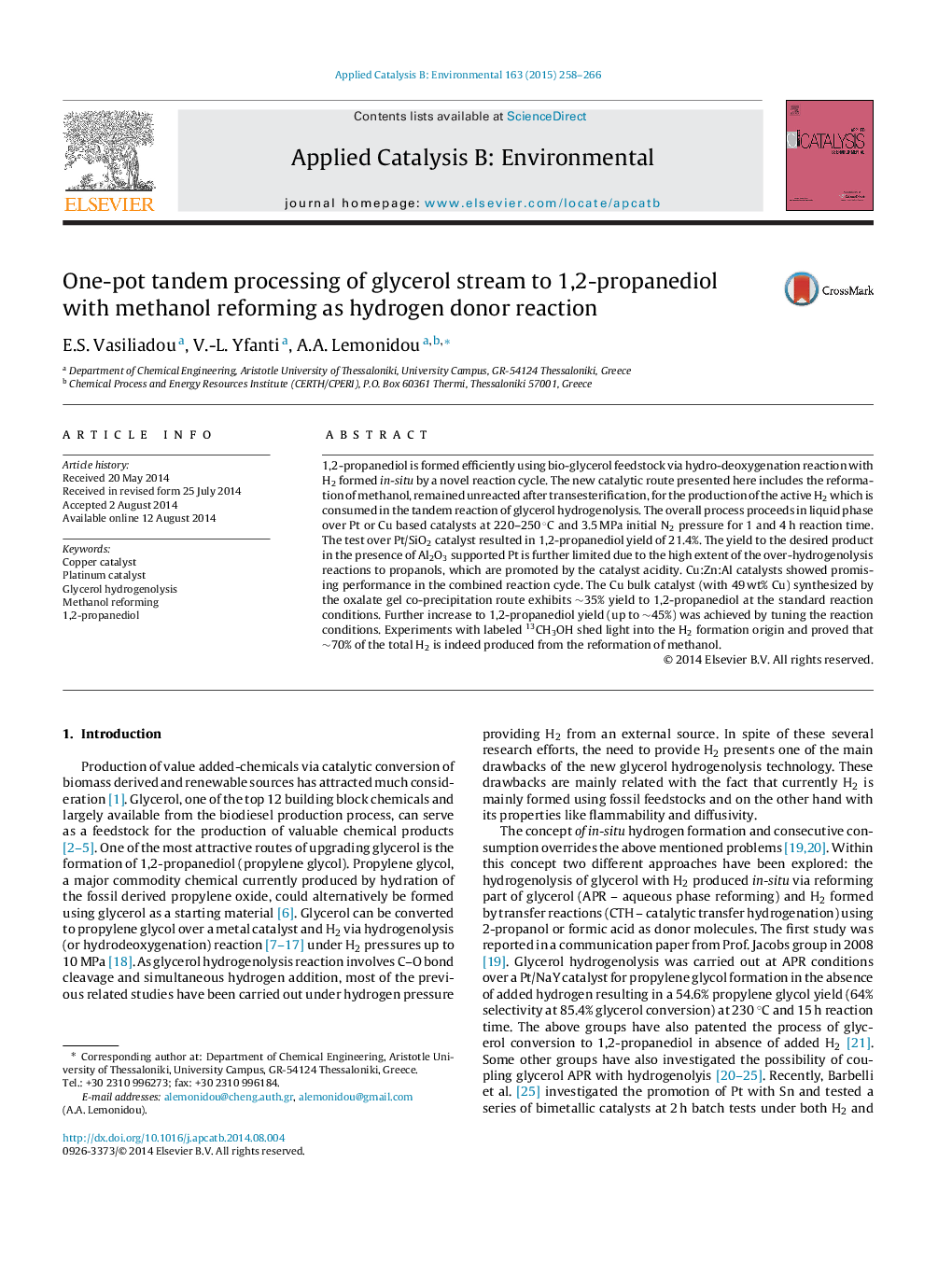| کد مقاله | کد نشریه | سال انتشار | مقاله انگلیسی | نسخه تمام متن |
|---|---|---|---|---|
| 44878 | 46375 | 2015 | 9 صفحه PDF | دانلود رایگان |
• A novel method for glycerol upgrading to 1,2-propanediol is presented.
• Methanol aqueous phase reforming (APR) is used as the H2 donor reaction.
• Cu:Zn:Al catalysts showed promising performance for the tandem reaction cycle.
• The maximum yield observed under milder reaction conditions.
• The contribution of methanol APR to the total H2 formation was proved using 13CH3OH.
1,2-propanediol is formed efficiently using bio-glycerol feedstock via hydro-deoxygenation reaction with H2 formed in-situ by a novel reaction cycle. The new catalytic route presented here includes the reformation of methanol, remained unreacted after transesterification, for the production of the active H2 which is consumed in the tandem reaction of glycerol hydrogenolysis. The overall process proceeds in liquid phase over Pt or Cu based catalysts at 220–250 °C and 3.5 MPa initial N2 pressure for 1 and 4 h reaction time. The test over Pt/SiO2 catalyst resulted in 1,2-propanediol yield of 21.4%. The yield to the desired product in the presence of Al2O3 supported Pt is further limited due to the high extent of the over-hydrogenolysis reactions to propanols, which are promoted by the catalyst acidity. Cu:Zn:Al catalysts showed promising performance in the combined reaction cycle. The Cu bulk catalyst (with 49 wt% Cu) synthesized by the oxalate gel co-precipitation route exhibits ∼35% yield to 1,2-propanediol at the standard reaction conditions. Further increase to 1,2-propanediol yield (up to ∼45%) was achieved by tuning the reaction conditions. Experiments with labeled 13CH3OH shed light into the H2 formation origin and proved that ∼70% of the total H2 is indeed produced from the reformation of methanol.
Figure optionsDownload as PowerPoint slide
Journal: Applied Catalysis B: Environmental - Volume 163, February 2015, Pages 258–266
